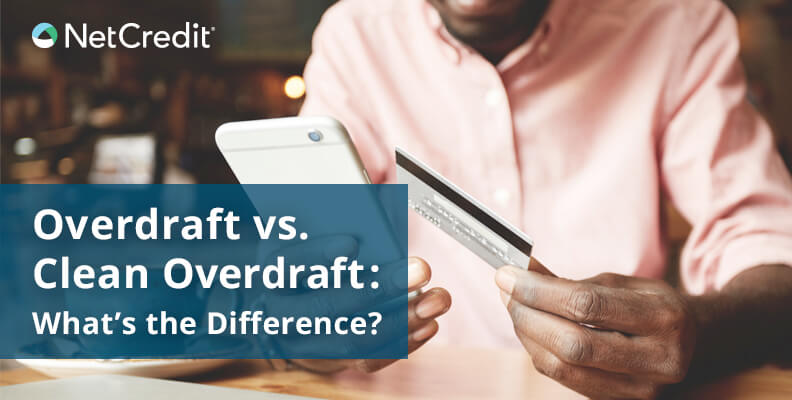Most of us have become familiar with the term “overdraft” via the overdraft protection that most financial institutions offer. Through this protection, individuals can withdraw money from accounts, despite having insufficient funds, without experiencing a “bounced payment.” Although individuals may overdraft for a variety of reasons (intentional or not) they may experience one of two kinds of overdraft. Depending on the overdraft and the resulting effects on your account, your credit score could see a change. Read on to uncover the differences between an overdraft and a clean overdraft, and how that can impact your credit.
Overdraft
A simple overdraft implies that there is some security involved on the side of the institution providing the funds — usually in the form of overdraft protection. In the case of an overdraft on a checking account, the financial institution will front the money to cover the consumer’s insufficient funds, but they might issue security in the form of an additional fee or penalty to the consumer. In addition, the institution might have a policy in place wherein an over drafted account is closed if it isn’t returned to good standing within a certain period of time. Consult with your bank to find out what sort of cost comes with their overdraft protection.
Clean overdraft
Clean overdrafts, on the other hand, imply that there is no security involved. Much like unsecured loans, the financial institution involved relies on the personal financial security of the consumer.
How can overdrafts affect my financial standing and credit score?
Overdrafting your account can happen to anyone, but it’s important to act quickly to make sure that your account stays in good standing. Every financial institution is different, but in order to maintain your good standing following an overdraft, you might be required to deposit enough into your account to return it to a positive balance at least once in the subsequent 30-day period. If you do not, it could result in additional fines, closed accounts and calls from collections agencies — all of which have the possibility to affect your credit score in a negative way.






